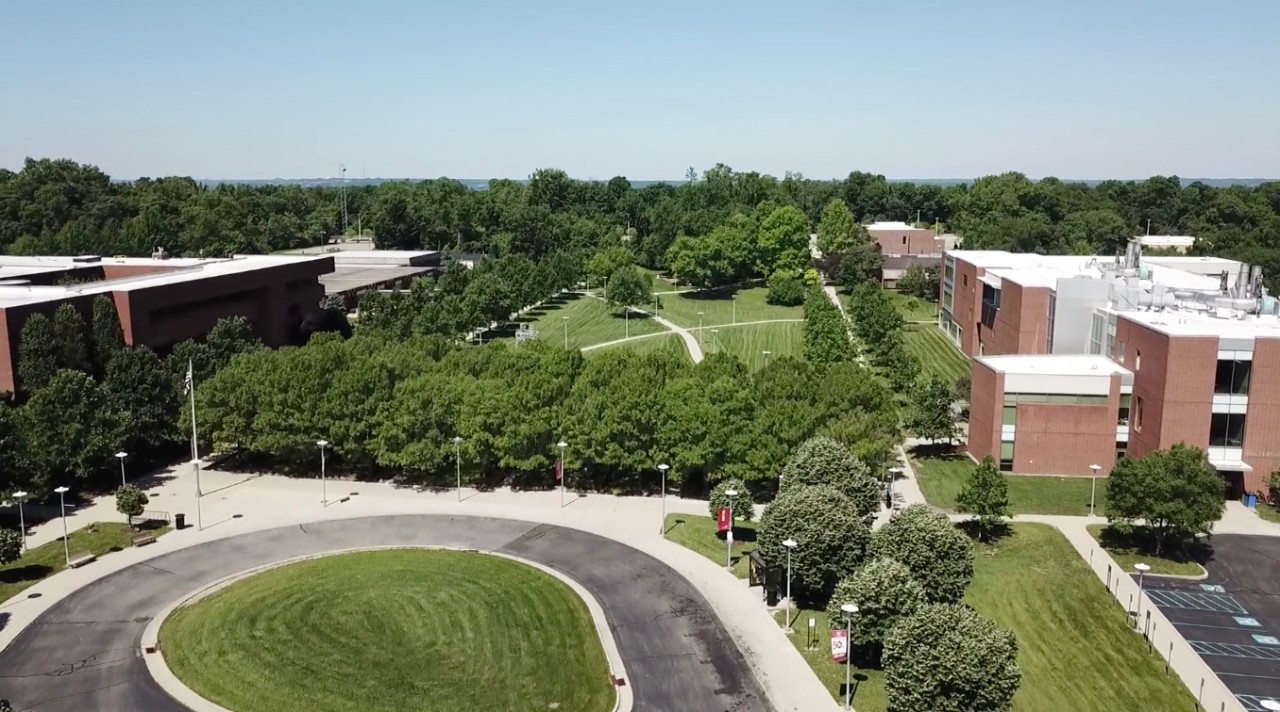
UC Blue Ash professor wins award for book on Lincoln

Matthew Norman, PhD, with his book "Knowing Him By Heart: African Americans on Abraham Lincoln."
A book that broke new ground in the study of Abraham Lincoln is being recognized with the 2024 Abraham Lincoln Institute Book Award.
Matthew Norman, PhD, associate professor of history at the University of Cincinnati Blue Ash College, is a recipient of the award for "Knowing Him By Heart: African Americans on Abraham Lincoln." He co-wrote the book with Fred Lee Hord, PhD, one of Norman’s former college professors.
The two began discussing the idea of a book about Lincoln that focuses on the writings of Black historians, authors, leaders and politicians regarding the president who led our country through the Civil War and issued the Emancipation Proclamation.
“We started talking about the topic of Lincoln and race and realized that no one had ever written a book like this before,” said Norman. “When we were working on it, I felt like it was an important book and I hoped that it would be well received.”
The book was developed over approximately 10 years as Norman continued teaching and met with Hord, who is retired and lives in Illinois, about once a month to collaborate.
"Knowing Him By Heart" explores the complex nature of views on Lincoln through the writings and thoughts of Frederick Douglass, Ida B. Wells-Barnett, Mary McLeod Bethune, Thurgood Marshall, Malcolm X, Gwendolyn Brooks, Barbara Jeanne Fields, Barack Obama and dozens of others. It includes speeches, letters and book excerpts that show the emotional and intellectual bond between Lincoln and Black Americans over the past 150 years.
The book offered an unprecedented view of Lincoln that caught the attention of leaders at the Abraham Lincoln Institute.
“We look for a book of high-quality research and scholarship, one that brings a fresh and creative perspective on Lincoln, and of a subject that we think will be lasting in its impact,” said John Barr, PhD, chair of the Abraham Lincoln Institute Book Prize Committee. “We believe that Matthew Norman's book met all of these criteria and we were especially impressed with the research on which the book was based, and the beautiful editing.”
The Abraham Lincoln Institute Book Award is a prestigious form of recognition, especially among Lincoln historians. Its recipients over the past 25 years include noted American historians and writers Jon Meacham and Doris Kearns Goodwin.
Norman said that "Knowing Him By Heart" has been well received overall and adds that this award is a very nice and unexpected bonus.
“We knew that there really had not been a book like this, and so we were hoping it would garner some attention. You don’t develop a book with the expectation you’re going to get rewarded for it, but it’s great to receive an award like this," he said.
Read more about the Abraham Lincoln Institute Book Award and see the list of past winners.
Learn more about "Knowing Him by Heart," published by the University of Illinois Press.
Featured photo at top of UC Blue Ash campus. Photo/UC Blue Ash.
About UC Blue Ash College
UC Blue Ash College is a regional college within the University of Cincinnati. It offers one of the best values in higher education with access to a nationally recognized UC education in more than 50 degree and certificate programs, as well as tuition that is about half of most colleges and universities. The college is located on a scenic 135-acre wooded campus in the heart of Blue Ash, Ohio. To learn more, call 513-558-9495, visit us online, like us on Facebook or follow us on Twitter and Instagram.
Additional Contacts
Related Stories
UC Blue Ash professor finds inspiration in documents from nation’s troubled past
August 21, 2020
A 1925 property deed owned by her late grandfather inspired Rhonda Pettit to address racial segregation and institutional racism in her poem ‘A Deed Supreme.’ It is one of two poems by Pettit included in the Anthology of Appalachian Writers Crystal Wilkinson Volume XII, which was recently released by the Shepherd University’s Center for Appalachian Studies and Communities.
UC Blue Ash honors award-winning faculty, staff and alumni
October 2, 2023
The University of Cincinnati Blue Ash College Distinguished Awards event included stories of a heroic effort, impressive achievements and a late start to a stellar career.